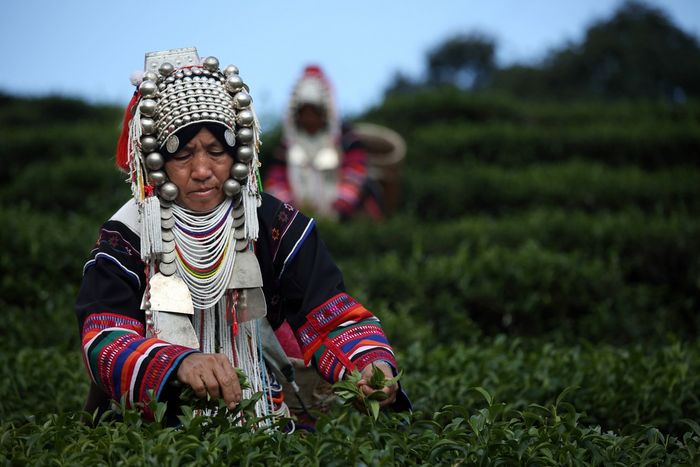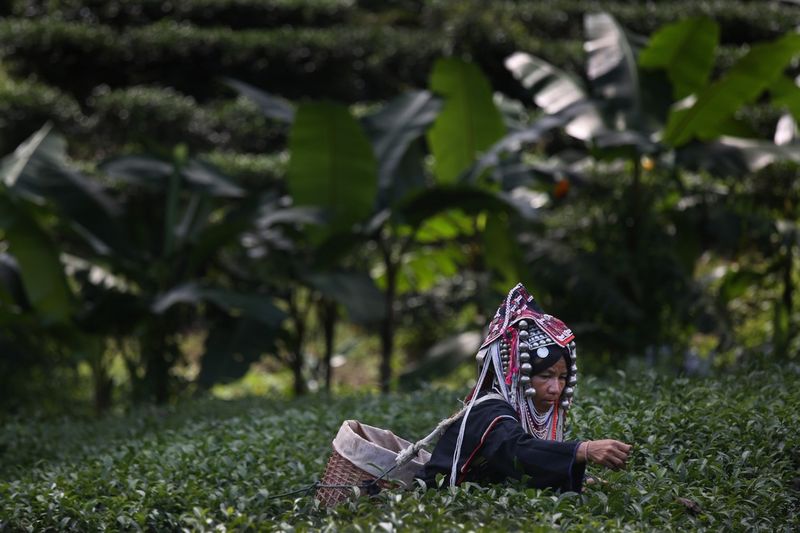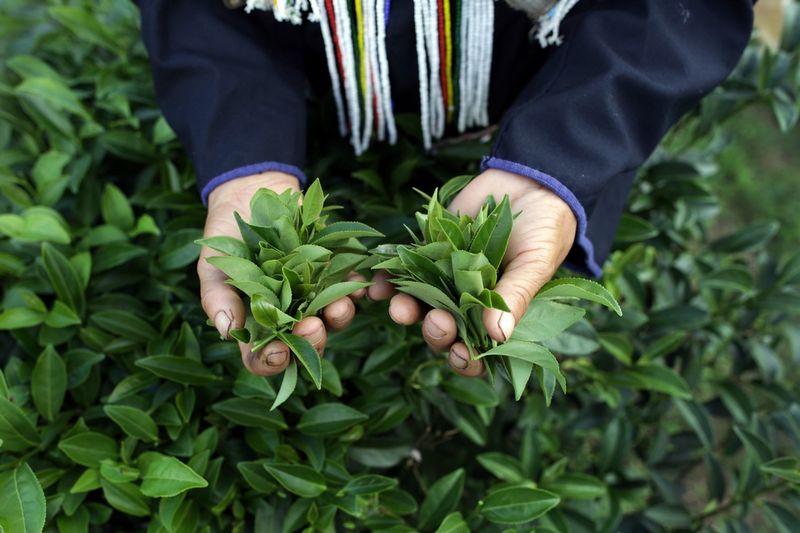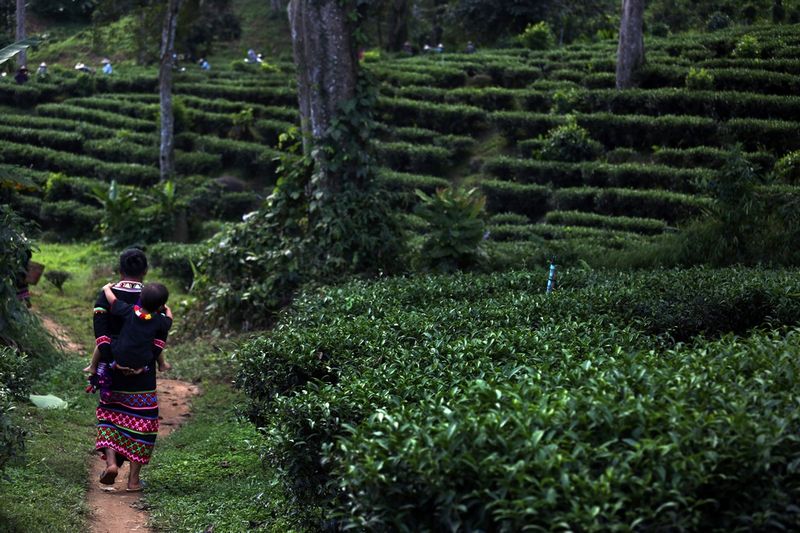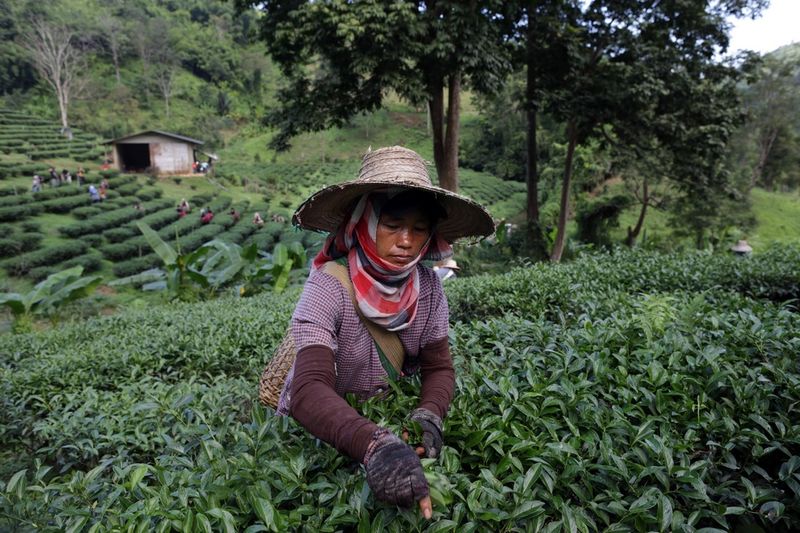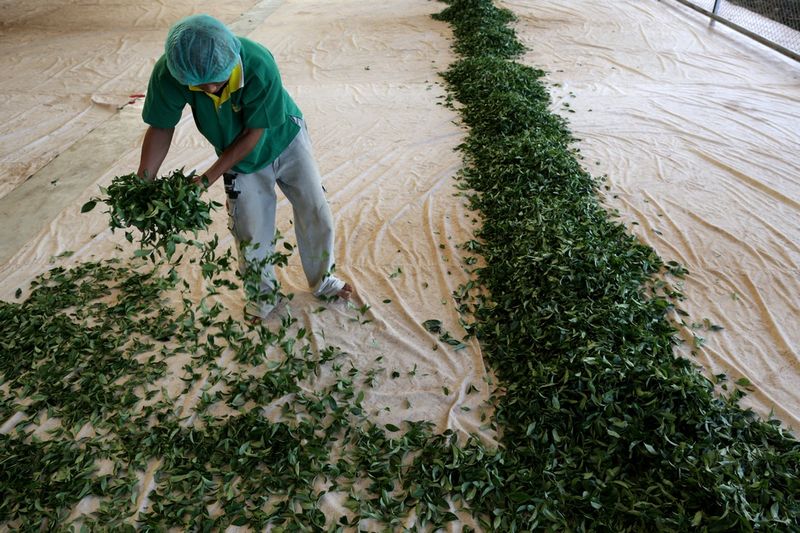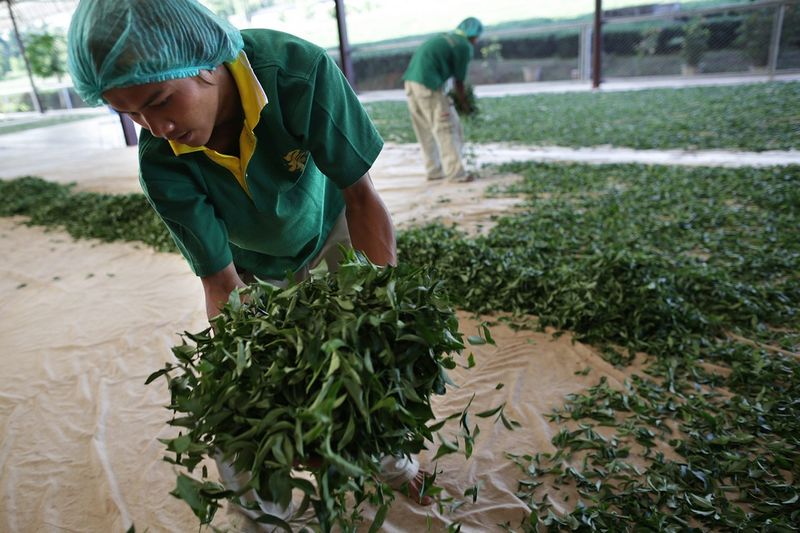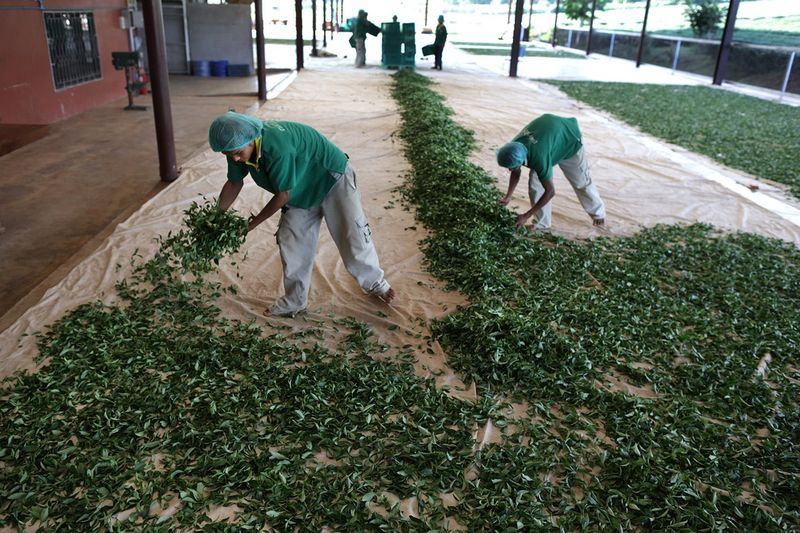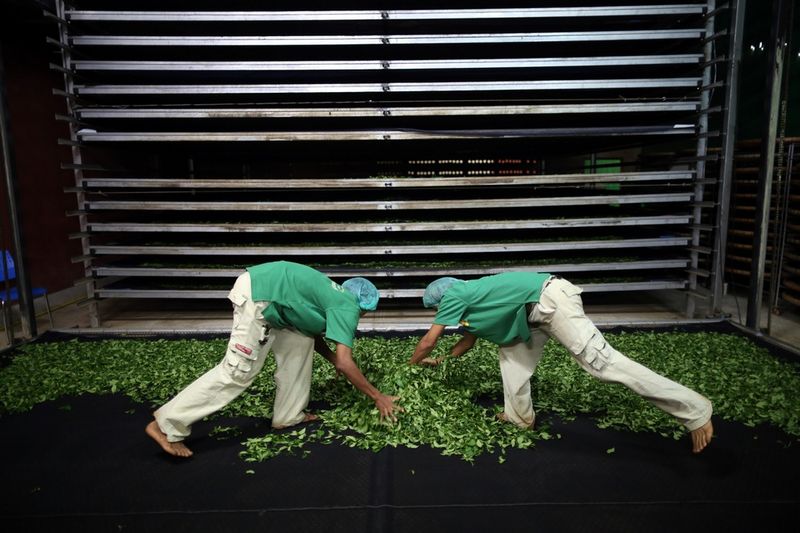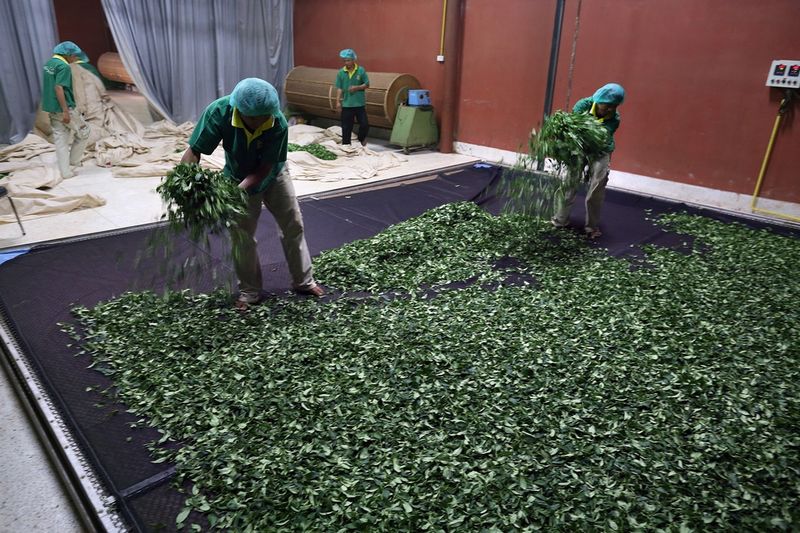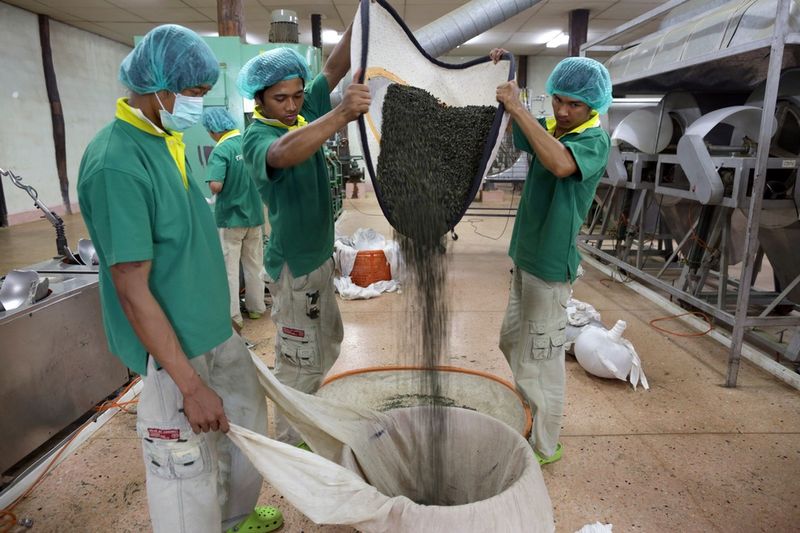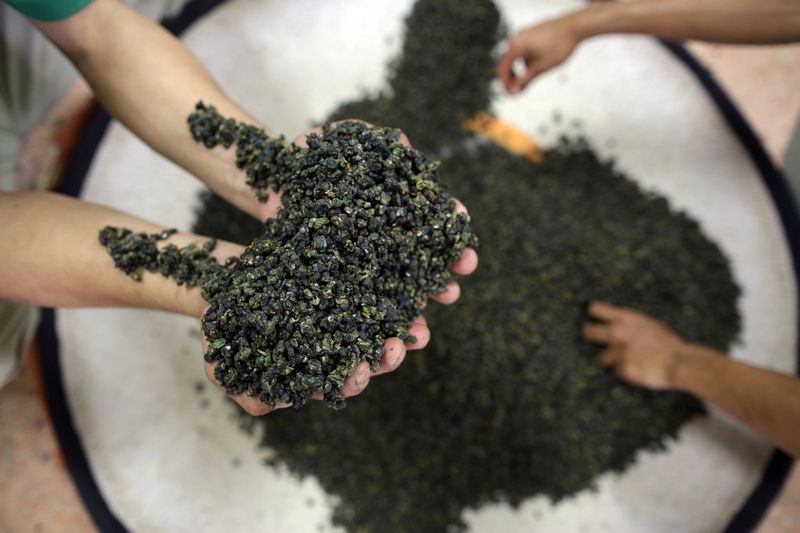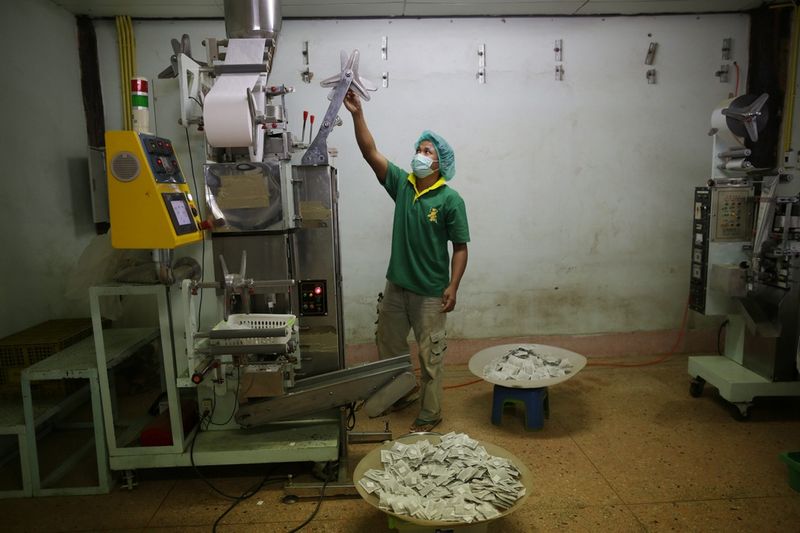Harvesting and Processing Oolong Tea in Thailand
2012
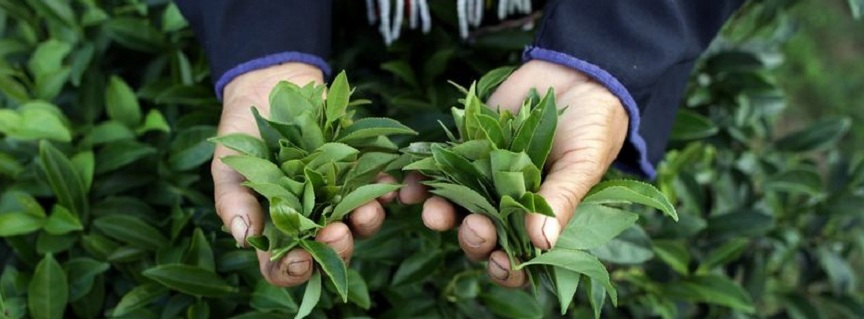
Today we are heading to a tea plantation, called Suvirun, which is located in the province of Chiang Rai in Thailand. Tea is harvested here every 6 weeks and from the leaves oolong tea is made. Oolong tea is made from the leaves of the camellia sinensis, like black, green and white teas. What differentiates it is the way that it is processed and of the 4 types, oolong is the most difficult one to process.
This is the Suvirun Organic tea farm which is family run. There are around 300 Thai workers, including 40 Akha hill tribe workers and 120 Burmese, working here each day to harvest tea leaves. The farm has been in business around 38 years and they harvest tea every 45 days. An average of 1.5 tons of tea leaves are collected at each harvest. On special occasions the Akha would wear their traditional dress while picking tea. These days, they wear it mostly for tour groups and ceremonies.
The best way to describe oolong tea is that it is somewhere between green and black tea. This is because they are only partially oxidized during the processing.
Processing tea is considered the art of tea, as it is what produces the subtleties in taste, body and it’s overall characteristics. Very basically, tea processing is about deciding how long to oxidize and ferment the leaves before drying them out.
The tea leaves have enzymes that get oxidized when the leaf is crushed, bruised or broken and air is allowed to get at it. The amount of oxidation depends on how much of the enzymes are exposed and for how long.
Steeping Oolong Tea
Use about two teaspoons of oolong tea per cup. Oolong teas should be prepared with water just below the boiling point (200 to 205 °F or 93 to 96 °C) and steeped for 3–10 minutes.
High quality oolong can be steeped several times from the same leaves and, unlike other teas, it improves with rebrewing: it is common to steep the same leaves three to five times, the third or fourth steeping usually being considered the best.
The tea leaves are picked when they are ready. Then to process oolong tea, the leaves are laid out in the sun and open air, to remove the moisture and until the leaves begin to wither. This takes about 8 to 12 hours.
Drink your tea slowly and reverently, as if it is the axis on which the world earth revolves – slowly, evenly, without rushing toward the future. ~Thich Nat Hahn
Oolong is a Chinese word that means black dragon, probably because the tea leaves are long, dark and curly and they uncurl like little dragons when you steep them.
After the leaves are allowed to dry in the air, they are tossed in baskets which bruises the edges of the leaves. By just bruising the leaves, they only become partially oxidized as only some of the enzymes are exposed to air.
Next, the leaves get dried out. They are usually steamed to stop the oxidation process. Oolong teas have varying degrees of oxidation and some are closer to black tea while others are closer to green.
The tea leaves are now wrapped up and tumbled to further oxidize and this is what gives oolong its characteristic shape.
The taste of oolong ranges greatly amongst its many subvarieties. It can be sweet and fruity with honey aromas, or woody and thick with roasted aromas, or green and fresh with bouquet aromas, all depending on the horticulture and style of production. (from here)
Finally, after the final drying, the tea goes off to be sorted, graded, and packaged.
Each cup of tea represents an imaginary voyage. ~Catherine Douzel
